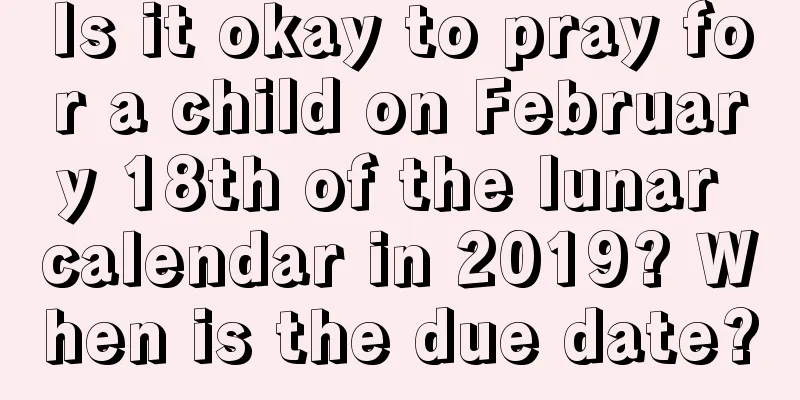What are the customs and habits of Frost Descent? What is Frost Descent?

Frost Descent is the last solar term in autumn and a transition period from autumn to winter. Since the beginning of Frost Descent, the autumn clouds disperse far away during the day, the frosty moon is cold and bleak, and winter is approaching. What are the customs and habits during Frost’s Descent? What is Frost Descent? In the ninth month of the lunar calendar, ancient people would happily climb mountains to express their emotions, drink chrysanthemum wine, and enjoy the beautiful scenery of autumn. Mr. Shui Mo has brought you relevant content about the ninth month of the lunar calendar in 2018. Let’s take a look.What are the customs and habits during Frost’s Descent?Eat persimmons during the Frost Festival :Frost Descent is the last solar term in autumn. At this time, there is a custom of eating persimmons in many areas in the south. As the saying goes, "Eating persimmons during the Frost's Descent will prevent a runny nose." People believe that eating persimmons during the Frost's Descent will prevent colds and runny noses in the winter. In fact, since persimmons are fully ripe around the time of Frost Descent, the persimmons at this time have thin skin, more flesh, delicious taste, and rich nutrition, and are deeply loved by the people. This led to the custom of eating persimmons during the Frost Descent season. The Frost Descent season is when persimmons are ripe. In some places in my country, there is a custom of eating persimmons during the Frost Descent season. The weather is turning cold at this time, and people believe that eating persimmons can not only keep warm, but also nourish the muscles and bones, making them very suitable for consumption during the Frost Descent season. For example, in the southern Fujian region, there is a saying that goes, "It is better to nourish yourself during the Frost Descent than to nourish yourself all year round." People believe that eating persimmons at this time of year will prevent them from catching a cold or having a runny nose in the winter. Frost Climbing: During the Frost Descent season, there is a custom of climbing high places to look far into the distance. Climbing high can not only relax the function of the lungs, but also allow you to look far into the distance, which can relax your mind and soothe your mood. The sky is high and the clouds are light, and the maple leaves are dyed red. It is pleasing to the eye to climb up and look out into the distance, but there are also some precautions. Avoid climbing in the morning and evening when the temperature is lower. When climbing, you must be calm and walk slowly to prevent sprains of the waist and legs; when going down the mountain, do not walk too fast to avoid knee injuries or muscle strains. When climbing, you should adapt to temperature changes by adding or removing clothes; when resting, do not sit on damp ground or in drafty areas; when sweating, you can loosen the buttons of your clothes slightly, but do not take off your clothes or hat to prevent catching a cold. Chrysanthemum appreciation during the Frost Descending Season: There is an ancient saying that "chrysanthemums bloom when frost hits them", so climbing mountains and admiring chrysanthemums has become an elegant activity during the Frost Descent season. It is recorded in "Continued Records of the Strange Things of Qi" by Wu Jun of the Liang Dynasty in the Southern Dynasties. “When frost falls, only this grass grows luxuriantly.” Therefore, chrysanthemum was regarded as “the grass of the season” by the ancients and became a symbol of vitality. The Frost Descent season is when the autumn chrysanthemums are in full bloom. Many places in my country hold chrysanthemum parties at this time, where people appreciate the chrysanthemums and drink wine to show their respect and love for chrysanthemums. Frost sends taro ghost: Frost Descent is the last solar term in autumn, and people attach great importance to it. There are customs such as exorcising evil spirits and sweeping tombs in different places to pray for good weather, a happy and healthy life. For example, in some places such as Yantai, Shandong, people go to the western suburbs to welcome the frost on the day of Frost's Descent; in Gaoming area of Guangdong, there is a custom of "sending away the taro ghost" before Frost's Descent. During the Frost Descent season, people would pile up tiles to form the Pagoda of Hanoi, put dry firewood inside the tower and light it. The stronger the fire burned, the better, until the tiles were red hot. Then they would push down the Pagoda of Hanoi and use the red-hot tiles to heat taro, which is locally called "beating the taro pot". Finally, they would throw the tiles out of the village, which was called "sending away the taro ghost". In this way, people ward off evil and welcome good fortune. Tomb sweeping during Frost Descent: In ancient times, people would visit graves during the Frost Descent season. According to "Qing Tongli", "On the Cold Food Festival and the Frost's Descent Festival, people worship and sweep the tombs. On the appointed day, they wear plain clothes and go to the tombs, bringing wine, wine and utensils for cutting grass and trees. They wear formal clothes all year round and cover the trees and cut the weeds, so it is called tomb sweeping." Nowadays, the custom of tomb sweeping on Frost's Descent is rare. However, the "Cold Clothes Festival" on the first day of October during the Frost Descent season is still quite popular among the people. The Cold Clothes Festival, also known as the "October Morning", "Ancestor Worship Festival", "Mingyin Festival" and "Ghost Festival", is known as one of the three major "Ghost Festivals" along with Qingming Festival and Zhongyuan Festival. In order to prevent the ancestors from suffering from cold in the underworld, on the night of the Cold Clothes Festival, people burn five-colored (red, yellow, blue, white and black) paper with cotton in between outside the door and pour dumplings into an gray circle, meaning that the weather is cold and they are sending warm clothes to the ancestors. The Cold Clothes Festival expresses people's remembrance and compassion for their deceased relatives. It is also the day when relatives send warm clothes to those they care about. Frost tonic: In addition, there is a saying among the people that "it is better to replenish your body in Frost Descent than in Winter". During the Frost Descent season, the weather becomes increasingly cold and the folk food customs become very unique. People believe that one should "replenish the Double Ninth Festival" before "replenishing the Frost Descent Festival", and that "replenishing the food in autumn" is more important than "replenishing the food in winter". Therefore, during the Frost Descent season, people have the custom of "boiling mutton", "boiling sheep's head" and "eating rabbit meat to welcome the frost". As the saying goes, you are what you eat, and it is said that eating stewed sheep's head can help treat diseases such as "headache". There are also records in medical books that stewing mutton with the "Four Treasures" or "Eight Treasures" tonic can be used to treat lung diseases and malaria. Frost-resistant rabbit meat is rabbit meat that has been frosted (i.e., frost descending). The rabbit meat at this time is delicious and has high nutritional value. What is Frost Descent?Frost is one of the 24 solar terms in the lunar calendar. When this solar term comes, the weather gradually becomes colder and frost begins to appear. Frost's Descent usually falls on October 23rd of the Gregorian calendar every year. At this time, the first frost appeared in the Yellow River basin of China, and most areas were busy sowing crops such as wheat.Frost Descent occurs around October 23rd of the Gregorian calendar every year, when the sun reaches 210 degrees of the ecliptic longitude. Frost means the weather is getting colder and the dew condenses into frost. "Collected Explanations of the 72 Seasonal Changes" states: "In the middle of September, the air is cold and condensed, and the dew turns into frost." At this time, white frost had appeared in the Yellow River Basin in my country. Silver ice crystals were shining brightly on the thousands of miles of fertile fields. The leaves were turning yellow and falling. The ancient book “Explanation of the Twenty-Four Solar Terms” says: “When the weather becomes cold, frost falls, and the yin begins to condense.” It can be seen that “frost falls” means that the weather is gradually getting colder and frost begins to fall. In meteorology, the first frost in autumn is generally called "early frost" or "first frost", while the last frost in spring is called "late frost" or "final frost". The period from the last frost to the first frost is the frost-free period. Some people also call the early frost "chrysanthemum frost", because chrysanthemums are in full bloom at this time. Su Shi, a great writer in the Northern Song Dynasty, wrote a poem: "Thousands of trees are swept into yellow, only the lotus is fragrant alone." |
Recommend
Can I get married on the ninth day of the sixth lunar month in 2017? Is it suitable for engagement and wedding banquet?
1. What day is the ninth day of the sixth lunar m...
Is it auspicious to hold a funeral on October 24th of the lunar calendar in 2019? What are the considerations for choosing a date for a funeral?
Introduction: Funeral is also an important event, ...
What kind of glutinous rice balls are best for the 12 zodiac signs to eat during the Lantern Festival?
Introduction: The joyous atmosphere of the Spring ...
Is the ninth day of the sixth lunar month in 2019 a good day? Is today an auspicious day?
Introduction: Different days unfold differently, a...
Is the first day of the eleventh lunar month in 2018 a suitable date for breaking ground?
Introduction: Breaking ground is a traditional big...
Can we worship our ancestors and visit their graves on February 16th of the lunar calendar in 2022? What about the lunar calendar?
The second month of the lunar calendar is also kno...
Is it good for a boy to be born on March 3, 2021? Boy's fate analysis
The fate of children born at different times is al...
What day is the first day of the seventh lunar month in 2018? What month and date is it?
The seventh month of the lunar calendar is the ti...
Analysis—Is March 15, 2020 (April 7) a good date in the lunar calendar?
The lunar calendar is not only a calendar for che...
What are the taboos on April 13th of the leap lunar calendar in 2020?
What are the taboos on April 13th of the leap lun...
What should you not do during the Grain in Ear solar term on May 4, 2019?
Every day is different, and the do's and don&#...
Is the twelfth month the same as December? Can I get a haircut in the twelfth month of 2018?
Introduction: In our country’s traditional culture...
What are the auspicious and unavoidable things on November 12, 2019 in the lunar calendar?
What are the auspicious and unavoidable things on...
Can I travel during Jingzhe in 2018? Is Jingzhe suitable for traveling far away?
The solar term Jingzhe vividly depicts various phe...
What is the saying about an old person passing away during the Jingzhe solar term? What are the taboos when an elderly person in the family passes away?
Speaking of Jingzhe, I believe everyone is familia...









